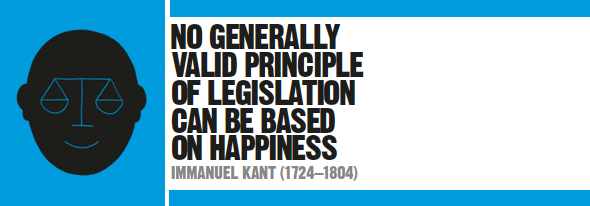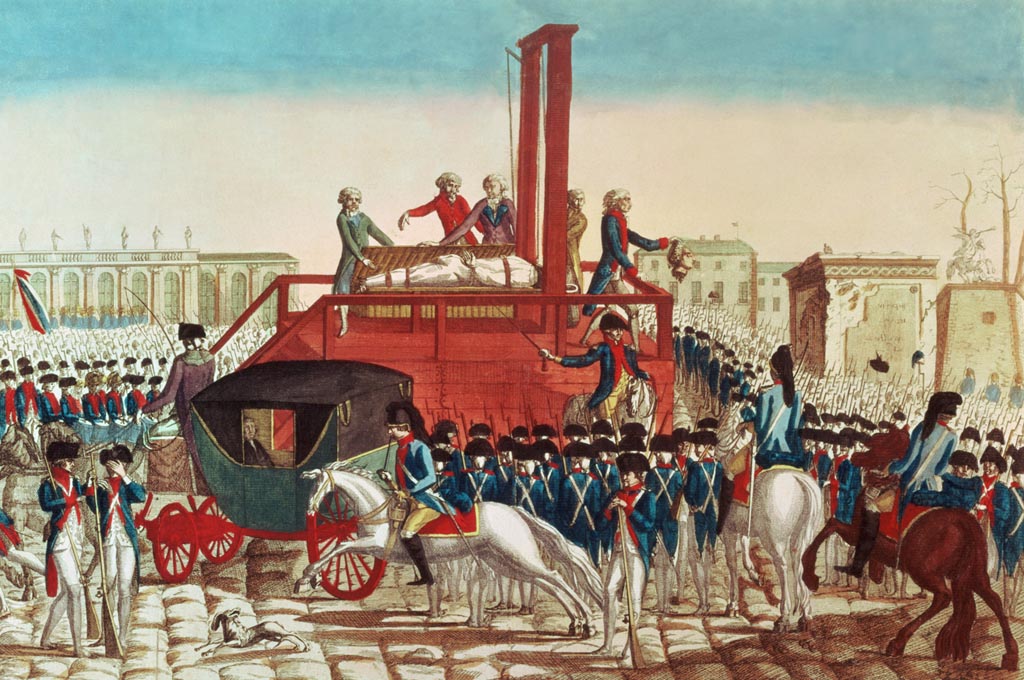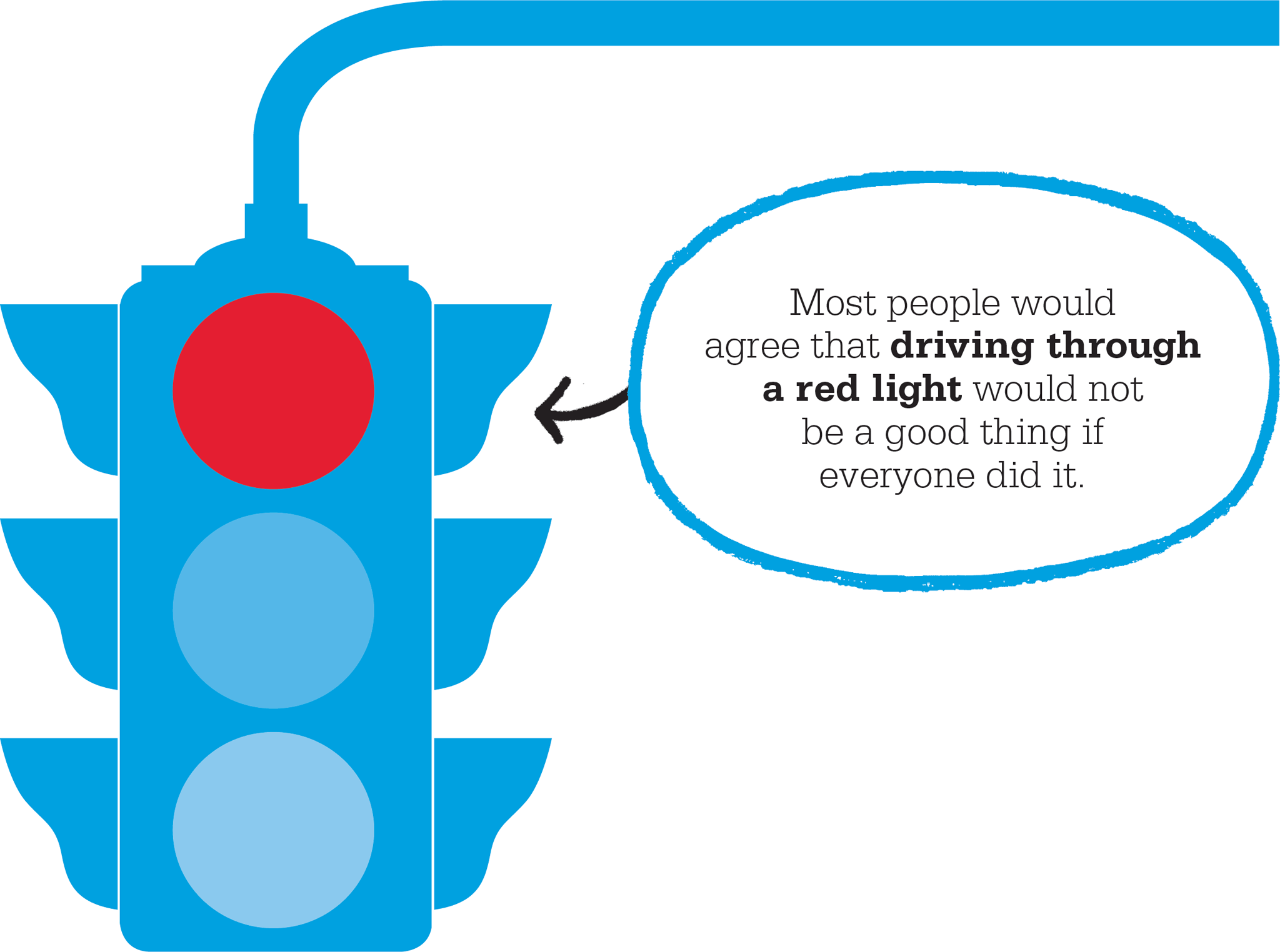
IN CONTEXT
Freedom
Personal responsibility
380 BCE Plato argues in the Republic that the state’s main aim is to ensure the happiness of all people.
1689 In his Second Treatise on Government, John Locke states that by a “social contract” people delegate their right of self-protection to government.
1851 Pierre-Joseph Proudhon argues that the social contract should be between individuals, not between individuals and government.
1971 In his book A Theory of Justice, John Rawls combines Kant’s idea of autonomy with Social Choice theory.
In 1793, the great German philosopher Immanuel Kant wrote an essay entitled “On the Common Saying: ‘That may be right in theory, but it does not work in practice,’” which is often now referred to simply as Theory and Practice. The essay was written in a year of momentous political change: George Washington became the first president of the US, the German city of Mainz declared itself an independent republic, and the French Revolution reached its height with the execution of King Louis XVI and Marie Antoinette. Kant’s essay examined not only political theory and practice, but also the legitimacy of government itself. This was a topic that had become literally a matter of life or death.

In stating that “no generally valid principle of legislation can be based on happiness,” Kant argues with a position taken by the Greek philosopher Plato some 2,000 years earlier. Kant’s essay states that happiness does not work as a basis for law. No one can—nor should—try to define what happiness is for someone else, so a rule based on happiness cannot be applied consistently. “For… the highly conflicting and variable illusions as to what happiness is,” Kant wrote, “… make all fixed principles impossible, so that happiness alone can never be a suitable principle of legislation.” What is crucial instead, he believed, is that the state ensures people’s freedom within the law “so that each remains free to seek his happiness in whatever way he thinks best, so long as he does not violate the lawful freedom and rights of his fellow subjects at large.” Kant considers what would happen in a society where people live “in a state of nature,” free to pursue their own desires. He sees the main problem as a conflict of interests. What do you do, for instance, if your neighbor moves into your house and throws you out, and there are no laws to stop him or give you any redress? Kant claims that a state of nature is a recipe for anarchy, in which disputes cannot be settled peacefully. For this reason people willingly “abandon the state of nature… in order to submit to external public and lawful coercion.” Kant’s position follows on from the English philosopher John Locke’s earlier idea of the social contract, which says that people make a contract with the state in which they each freely consent to give up some of their freedom in exchange for the state’s protection.

King Louis XVI of France was executed in 1793. For Kant, the French Revolution was a warning to all governments that they must rule for the good of all the people.
The consent of all
Kant asserts that governments must remember that they govern only by the people’s consent—not the consent of a few people, nor even a majority, but of the entire population. What counts is that no one among the population might potentially object to a proposed law. “For if the law is such that a whole people could not possibly agree to it, it is unjust; but if it is at least possible that a people could agree to it, it is our duty to consider the law just.”
Kant’s idea acts as an important guide for the citizen as well as the government, because he is also saying that if a government passes a law that you consider wrong, it is still your moral duty to obey it. You might think it is wrong to pay taxes to your government to fund a war, but you should not withhold your taxes because you feel the war is unjust or unnecessary, because “it is at least possible that the war is inevitable and the tax indispensable.”
"No one can compel me to be happy in accordance with his conception of the welfare of others."
Immanuel Kant
However, for Kant, although subjects have a duty to obey the law, they also have to take individual responsibility for their moral choices. He says that morals have a “categorical imperative.” By this, he means that an individual should only follow rules or maxims that they believe should apply to everyone. Each person, he says, must act as though they were lawmakers through each of the moral choices they make.

Kant’s categorical imperative states that you should act only according to rules or maxims that you would wish to be universally applicable. The state should not pass laws that do not meet this criterion.
The will of the people
At the heart of Kant’s philosophy—and applicable to both morality and politics—is the notion of autonomy. This is the idea that the human will is and must be wholly independent. Freedom is not being unbound by any law, but being bound by laws of one’s own making. The link between morals and state laws is direct: the legitimacy of both morality and laws is that they are based on the rational desires of the people; the social contract is “based on a coalition of the wills of all private individuals in a nation.” State laws must be literally “the will of the people.” So, if we agree to be governed, we must rationally agree to obey every law the government passes. By the same token, though, the laws of an external government, such as an occupying force or colonial power, have no legitimacy. Kant asks whether a government has a role in promoting the happiness of its people. He is clear that since only an individual can decide what makes him happy, any legislation designed to improve people’s situation must be based on their actual wishes, not what the government believes will be good for them. Nor should a government compel individuals to make other people happy. It cannot, for example, force you to go and see your grandmother regularly, even though it might be good for the country’s general happiness if grandmothers were properly appreciated.
A state without happiness?
Some commentators have argued that Kant does not see happiness as playing any part in government thinking. If this were the case, however, the state would do no more than protect its citizens physically. It would have no business providing education; building things such as hospitals, art galleries, and museums, or roads and railways; or in looking after people’s welfare in any way. This position may be logically consistent, but it is not a recipe for a state where very many of us would want to live.
"All right consists solely in the restriction of the freedom of others."
Immanuel Kant
All the same, in the last 50 years, some thinkers have used this interpretation of Kant as a basis for the privatization of state industries, and for the dismantling of the welfare system on the grounds that it is an infringement of individual freedom to expect people to pay taxes for other people’s happiness. However, other commentators believe this is a misunderstanding of Kant’s position. They claim that Kant is not necessarily saying the promotion of happiness should not play a part in the thinking of the state—just that happiness cannot be the sole criterion. In addition, Kant points out that happiness can only be found after a solid constitution, outlining the role of the state, is already in place. In Theory and Practice, he says “the doctrine that ‘the public welfare is the supreme law of the state’ retains its value and authority undiminished; but the public welfare which demands first consideration lies precisely in that legal constitution which guarantees everyone his freedom within the law.”
Rights and happiness
Two years before Theory and Practice, in an essay entitled Perpetual Peace, Kant wrote that governments have two sets of duties: to protect the rights and liberties of the people as a matter of justice, and to promote the happiness of the people, as long as they can do this without diminishing the rights and freedom of the people. In recent years, commentators have wondered whether governments, perhaps still powerfully influenced by the narrower interpretation of Kant’s advice, have concentrated too much on economics and justice and left happiness out of the picture. Responding to these criticisms, in 2008 France’s then president Nicolas Sarkozy commissioned a report from a team led by US economist Joseph Stiglitz to measure his country’s “well-being.”

Intervention in Afghanistan may be unpopular with the public in the US and Europe but, according to Kant, this discontent does not give individuals the right to withhold their taxes.
IMMANUEL KANT

The German philosopher Immanuel Kant was born in Königsberg, Prussia (now Kaliningrad in Russia), and lived there his whole life. The fourth of nine children of Lutheran parents, he was educated at a Lutheran school, where he gained a love of Latin but took a strong dislike to religious introspection. At the age of 16, he enrolled as a theology student, but soon became fascinated by philosophy, mathematics, and physics.
Kant worked at the University of Königsberg as an unpaid lecturer and sub-librarian for 15 years before becoming a professor of logic and metaphysics at the age of 46. He gained international fame with the publication of his Critiques, and continued to teach for the rest of his life. He is considered by many to be the greatest thinker of the 18th century.
Key works
1781 Critique of Pure Reason (revised 1787)
1788 Critique of Practical Reason
1793 Theory and Practice
See also: Plato • Thomas Hobbes • John Locke • Jean-Jacques Rousseau • Jeremy Bentham • John Rawls
